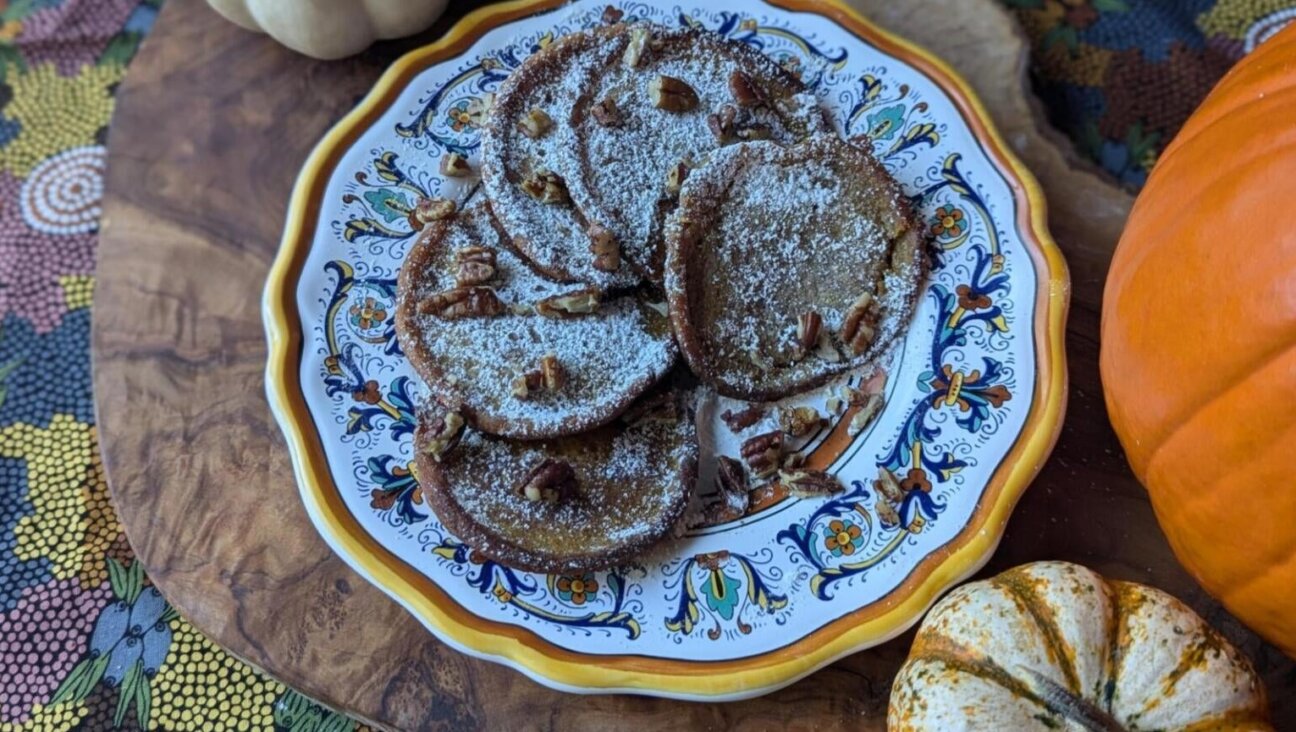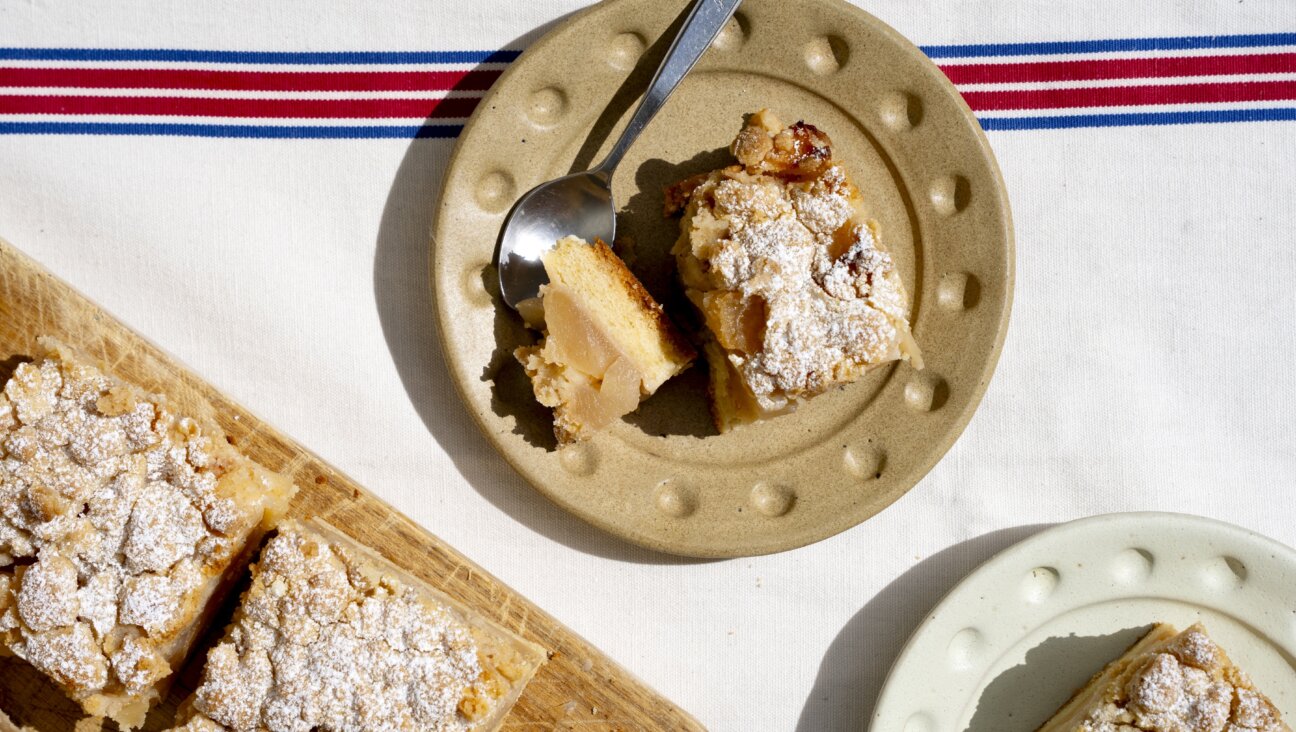Guava and Cheese Babka

Graphic by Angelie Zaslavsky
New Cookbook: “Modern Jewish Baker” by Shannon Sarna
New Food: Guava
This recipe was inspired by my friend and colleague Jennifer Stempel, who loves combining her Cuban and Jewish heritage in dishes like Cuban matzo ball soup, plantain knishes and guava hamantaschen. Guava and cream cheese pastries are one of the most classic sweets at Porto’s, a famous bakery in Los Angeles that we both adore, and this babka is inspired by those beloved treats.
Yields 3 loaves
For the dough:
1 tablespoon dry active yeast
1/3 cup + ½ teaspoon sugar
½ cup lukewarm water
4 ½ cups unbleached all-purpose flour
½ teaspoon salt
2 teaspoons vanilla
1 teaspoon fresh orange zest
½ cup whole of 2% milk (or almond milk)
¾ cup (1 ½ sticks) unsalted butter (or margarine), melted
2 eggs
For the sugar syrup:
2/3 cup water
1 cup sugar
1 teaspoon vanilla
For the filling:
12 ounces cream cheese, softened
6 ounces guava paste
1) For the dough: Place the yeast and ½ teaspoon sugar in a small bowl. Add the lukewarm water and stir gently to mix. Set aside until foamy, 5 to 10 minutes.
2) In a stand mixer fitted with a dough hook, mix together the flour, 1/3 cup sugar, salt, 2 teaspoons vanilla, and orange zest.
3) In a medium saucepan, scald the milk (bring almost to a boil, until milk is just simmering). Allow to sit for 1 minute to cool just slightly.
4) With mixer on low, add the water-yeast mixture, milk, and melted butter. Add eggs one at a time.
5) When the dough begins to come together, after 2 to 3 minutes, turn off mixer and scrape down the sides. Raise the speed to high and mix for another 5 to 10 minutes until the dough is shiny. Elastic, and smooth. It may seem like a long time to mix, but the result is worth the wait.
6) Place the dough in a greased bowl with a damp towel on top. Allow to rise 1 to 2 hours.
7) Make the sugar syrup while dough is rising: Combine the water, sugar, and vanilla in a small saucepan. Bring to a low boil until the sugar has dissolved. Set aside and cool. This syrup can be kept in the fridge for 2 to 3 months and makes enough syrup for at least 2 batches of babka (6 medium babkas).
8) Prepare three 8½-by-4½-inch greased loaf pans. Note you can also make two larger round babkas that can be baked on baking sheets.
9) Cut the dough into three equal parts (use a food scale for precision). Roll out one part into a rectangle. Spread with one-third each of the cream cheese, then guava paste, and roll up along the shorter side (to create more swirls inside).
10) Once the dough is formed into a swirled log, cut it straight down the middle so the filling is exposed. Cut ½ inch off each end. Layer each cut piece on top of one another and twist. Place in a greased loaf pan.
11) Repeat with the other two pieces of babka dough. Lightly drape a kitchen towel over the top of pans. Allow to rise another 30 minutes. Preheat oven to 350°F while the dough rises.
12) Bake for 20 minutes. Brush each babka with two layers of sugar syrup. Place back in the oven for approximately 15 minutes. The edges should be slightly brown and the middle should be slightly doughy.
13) When the babkas come out of the oven, immediately brush each with another 3 light layers of sugar syrup.
14) Allow to cool for 5 to 10 minutes. Using a butter knife, loosen sides of the babka from the pan and place on wire rack to cool.
Recipe reprinted with permission from “Modern Jewish Baker” by Shanna Sarna.
















